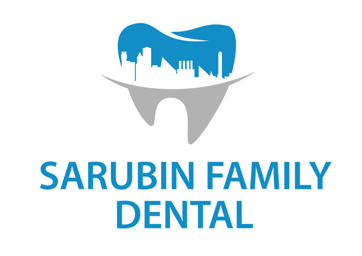Canker Sores: Causes and Treatment
Canker sores are small shallow ulcer or lesion that can develop on the inside of your lips, soft areas inside your mouth or at the base of your gums. Unlike cold sores, canker sores are not contagious and don’t present themselves on the surface of your lips.
However, getting a canker sore can be cause for many days of pain or discomfort and distraction. Depending on their location, some canker sores can make eating or speaking more difficult.
One may wonder where these ulcers come from and what can be done about them.
The Five Most Common Canker Sore Triggers:
- Eating highly acidic foods, such as pineapples, tomatoes, lemons, or strawberries can be tough on the soft tissues of the mouth and cause a canker sore reaction.
- The strain on one’s immune system from being ill may increase the likelihood of getting a canker sore.
- Biting the lip or inside the cheek can cause tissue injury. When it swells up during the healing process it becomes more likely to be bitten accidentally again.
- Prolonged periods of high stress put a strain on the immune system, which, in addition to other factors that may develop, makes the mouth more vulnerable to developing sores or lesions.
- Braces or improperly fitted dentures can lead to canker sores, if they rub against the inside of the cheeks or the gums.
Canker Sore Prevention and Remedies
Prevention
If you’re prone to getting canker sores, take a look at your eating habits and lifestyle. Perhaps, there you will find a clue to what’s causing them. Do you tend to eat highly acidic foods? Are you frequently ill or rundown? Do you operate in an environment of great stress? Are your dentures or braces causing undue rubbing or pain?
Prevention Techniques
Try to limit your intake of acidic foods. Once the tendency toward canker sores goes away, you can slowly add more of these foods back into your diet.
When you are ill or feeling rundown, make sure you see your health specialist and get plenty of rest. This should help.
If you can reduce your level of stress in any way, this will help lower your likelihood of getting canker sores.
If you have dentures of braces which are causing discomfort, get some dental wax and make an appointment with your dentist or orthodontist. You shouldn’t have to put up with pain or discomfort from your oral appliances.
General oral health ad canker sore prevention techniques include getting plenty of iron, B12, and folate by incorporating fresh foods including, carrots, kale, spinach, parsley, and yogurt into your diet.
Good oral hygiene can also help prevent and/or treat canker sores, especially if you are vulnerable to them. Unchecked bacteria, plaque, and decay make it more difficult for our body’s natural defenses to do their job.
Tips for Treating Canker Sores
- Apply topical medication available at any pharmacy
- Take an over-the-counter pain medication
- Rinse mouth with warm salt water to decrease inflammation and promote quicker healing
- Use a fluoride toothpaste that does not contain sodium laurel sulphate
- Minimize irritation by using only a soft-bristled toothbrush
Questions About Canker Sores?
If you have any questions related to canker sores or any other aspect of oral or dental care, we’ll be happy to answer them. We want all our patients to be armed with all the knowledge they need to keep their mouths, teeth, and gums in the best possible shape.
The content on this blog is not intended to be a substitute for professional medical advice, diagnosis, or treatment. Always seek the advice of qualified health providers with questions you may have regarding medical conditions.
